
Indians love their ultra-processed foods but with new study linking it to 32 health problems, it’s time to quit
Shorts By/
Ashish Walter
According to a study published in BMG ( is a weekly peer-reviewed medical journal) suggest that ultra processed foods like ice cream, ham, sausages, crisps, mass-produced bread, breakfast cereals, biscuits, carbonated drinks, fruit-flavoured yogurts, instant soups, and some alcoholic drinks including whisky, gin, and rum can increase your risk of death from cardiovascular disease by 50% and a 32% increase in the occurrence of conditions like cancer, type 2 diabetes, cardiovascular issues, gastrointestinal and respiratory problems, depression, and anxiety.
indianexpress

This Jail Serves Special Food to VIP Inmates, Alleges Prisoner: Mutton Masala at Rs 8,000
Shorts By/
Ashish Walter
Surendra Gadling, a prisoner facing charges in the 2018 Bhima Koregaon violence case, lodged a formal complaint with the Anti-Corruption Bureau in Thane. According to the recent reports Taloja Central Jail in Mumbai was serving lavish meals to VIP inmates at preposterous prices.
News18

24 Students Fall ill After Eating Mid-day Meal At Odisha School
Shorts By/
Ashish Walter
A government school in Odisha served a mid day meal after which at least 24 students fell ill and were taken to Soro Hospital for immidiate treatment. This incident took place in Udaynarayan Nodal School in Sirapur.
ndtv
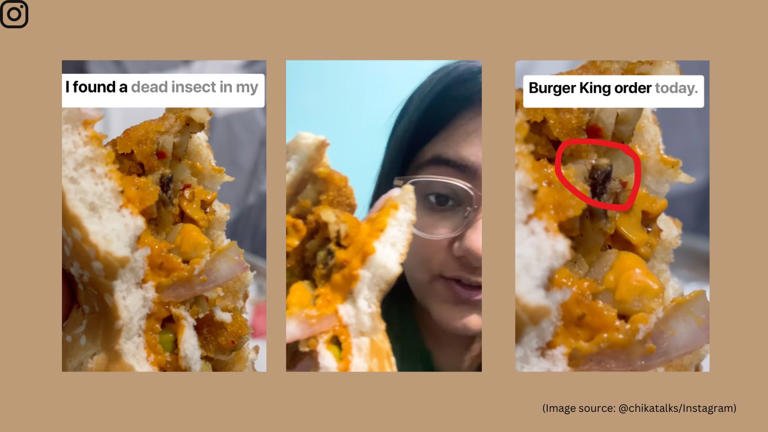
Dead insect found in Burger King order, voucher & burgers offered as compensation
Shorts By/
Nazar Abbas
A food blogger was shocked to find a dead insect in a order she made from Burger King. She demanded compensation for mental agony & health suffering despite being offered the voucher and burger in compensation.
The Indian Express
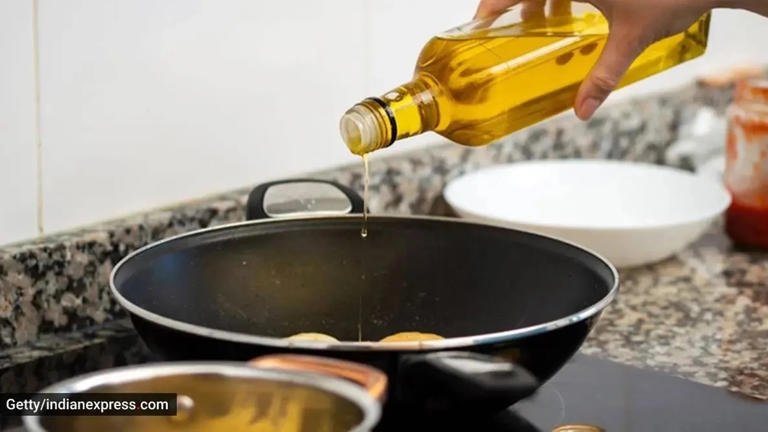
Mustard oil loved by Indians, but is banned in the US
Shorts By/
Nazar Abbas
Mustard oil, known for its pungent scent and harsh flavor, is a common ingredient in many Indian recipes. However, some brands include significant levels of erucic acid, a chemical associated with serious heart health hazards in excessive doses.
The Indian Express
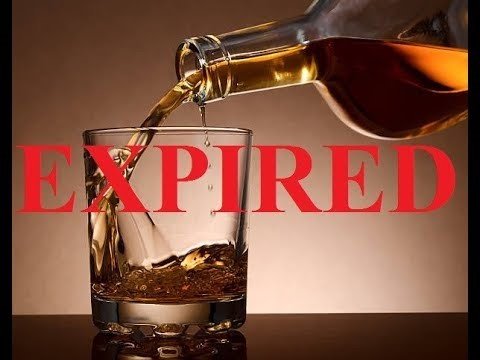
Did you know your whiskey can expire
Shorts By/
Ashish Walter
Indulging in whisky is a leisurely affair, quite distinct from the time-sensitive nature of wine consumption. Unlike wine, there’s no rush to finish an opened whisky bottle within a set timeframe. Yet, a pertinent question arises: Does whisky have an expiration date, especially after you’ve poured your first dram and returned it to the confines of your bar cabinet? In brief, yes, whisky does have a shelf life after being opened, contingent on the level of liquid remaining in the bottle. The interaction of whisky with oxygen triggers oxidation, ultimately leading to its expiration. The volume of whisky in the bottle plays a crucial role, with a fuller bottle minimizing the ingress of oxygen, and preserving the spirit, whereas an emptier bottle increases the risk of oxidation. The longevity of an opened bottle of whisky is intricately tied to its fill level. If the bottle is at least half-full, the whisky remains enjoyable for one or two years. However, as the liquid depletes, with only a quarter or less remaining, the expiration clock accelerates to around six months, as per insights from The Tasting Table. Upon unsealing, the alcohol content can decrease due to ethanol evaporation, altering the taste profile. For example, the extended exposure of rich, peated scotch whiskies to air diminishes their intensity over time.
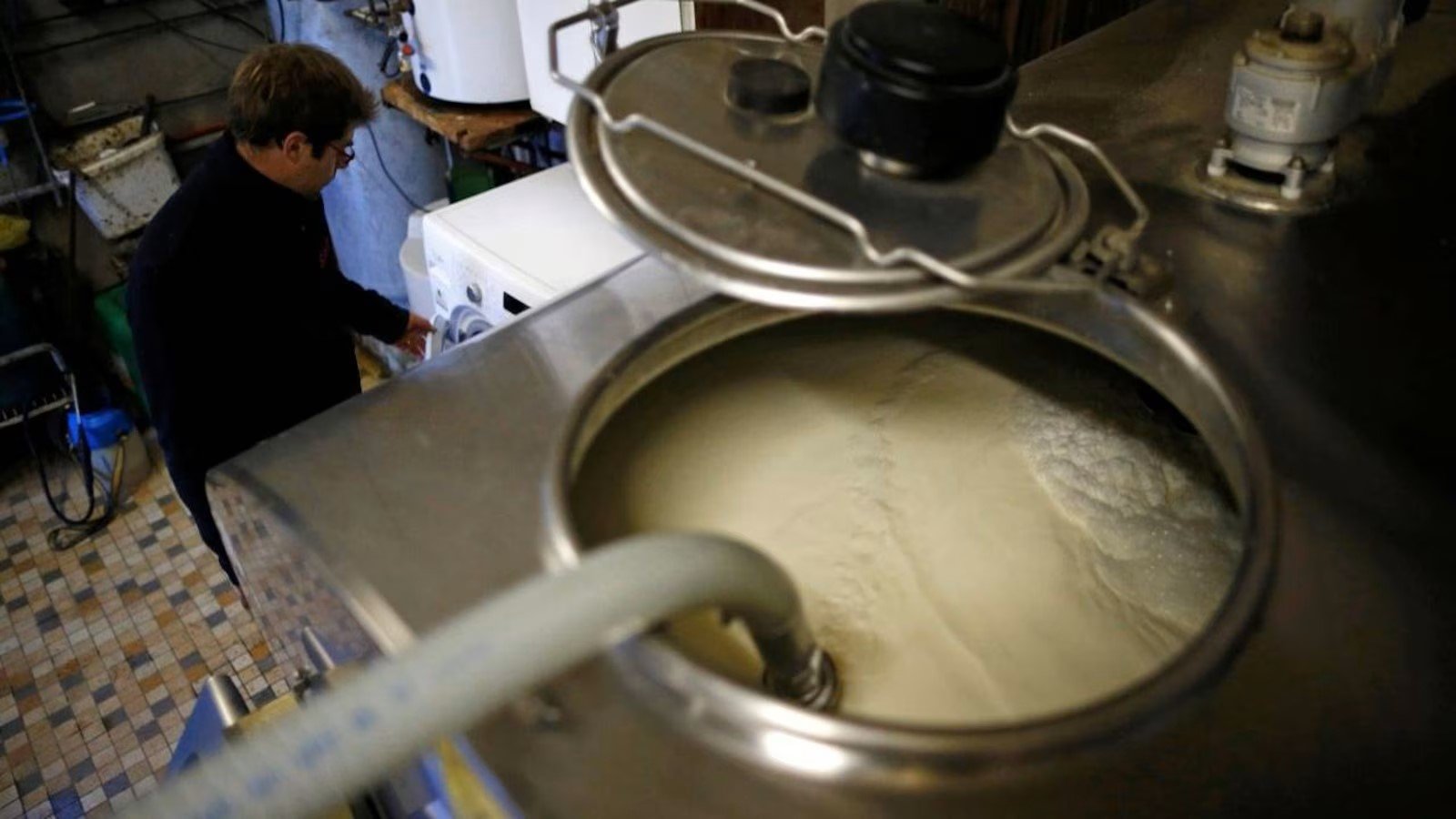
Horror stories of food adulteration in India go viral
Shorts By/
Ashish Walter
An X user's post on how detergent was used to make milk look whiter and frothier has opened Pandora's box on social media with several other users joining in to share their experiences with adulterated food. It all started when an entrepreneur Ram (@ramprasad_c) -- who was into manufacturing liquid detergent -- recalled what one of his sales executives told him in 2005. "On food safety in India, here is a story that shocked me. Many years ago, I launched a new liquid detergent while working at a large company. One of the sales guys came up to me and said, he’d have sold a lot more if the fragrance wasn’t so strong," Ram wrote. When asked if any customer had given any feedback regarding the fragrance, the sales executive said that a lot of people bought liquid detergents to add to milk. Apparently, it made the milk look whiter and frothier. He also claimed that a rival company had a similar product with a mild fragrance and that such customers preferred to use it instead. "I told the guy we aren’t changing the product. I stopped consuming lassi, and yoghurt from those markets after that," Ram said. Another X user shared a similar incident with a friend's peanut candy manufacturing unit. "One of my friends was running a peanut candy factory and the cook who turned out temporarily for work in the place of the permanent one, used to make more peanut candies which were much crispier... On enquiry, my friend came to know that this new cook was adding dishwash liquid to the raw mixture of candies before cooking and that's what made them crispier and the production volume too was higher," wrote Rocky Bhai
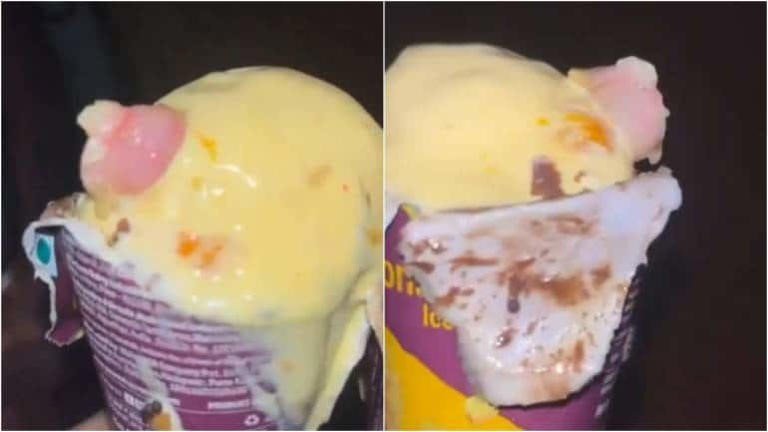
Yummo Ice Creams responds after Mumbai doctor finds human finger in cone
Shorts By/
Ashish Walter
Brendan Ferrao, a Mumbai-based doctor 26-year-old resident of Malad, made the alarming discovery when he bit into the ice cream and felt something unusual in his mouth. The incident occurred on Wednesday night when Ferrao's sister ordered three ice creams—two mango-flavoured and one butterscotch—via a quick commerce platform. After her brother discovered the severed human finger embedded in the ice cream cone, the sister immediately contacted the police. Yummo Ice Creams responded, stating, “We have stopped manufacturing at this third-party facility, isolated the said product at the facility and our warehouses, and are in the process of doing the same at the market level. Product quality and safety being our highest priority, we were in process to address the situation. Meanwhile, the matter was escalated, and an official police complaint was filed by the customer."
moneycontrol

Government acts in response to ethylene oxide contamination against MDH and Everest
Shorts By/
Ajay Singh
The Indian government has imposed sanctions on spice exporting companies Everest and MDH after testing revealed high levels of cancer-causing ethylene oxide in products exported to Singapore and Hong Kong. The government has conducted three consultations with the industry, aiming to ensure full compliance with international standards and align industry practices.
Mint
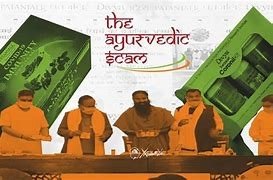
Patanjali official, 2 others get 6 months in jail as 'soan papdi' fails quality test
Shorts By/
Ashish Walter
On Oct 17, 2019, a food safety inspector visited Lila Dhar Pathak's shop at Main Market in Berinag, Pithoragarh, where concerns were raised about Patanjali Navratna Elaichi Soan Papdi (a sweet). Samples were collected and notices issued to Kanaha Ji Distributor, Ramnagar, and Patanjali Ayurved Ltd, Haridwar. Forensic testing at the state food and drug testing laboratory in Rudrapur, Udham Singh Nagar, was conducted on May 18, 2019. The chief judicial magistrate of Pithoragarh sentenced three men, including an assistant manager of Patanjali Ayurved Ltd, to six months in prison and fined all three defendants for failing a soan papdi food test.
Times of India
